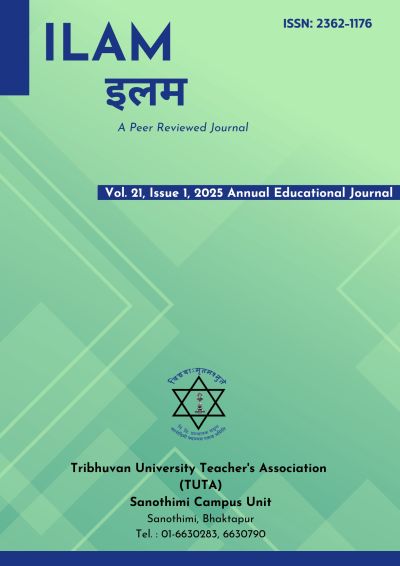Behavioral Assessment and Support Strategies for Special Education Classrooms
DOI:
https://doi.org/10.3126/ilam.v21i1.75656Keywords:
Functional Behavioral, Assessment, Positive Behavioral, SupportAbstract
This qualitative research explores the implementation and outcomes of Functional Behavioral Assessment (FBA) and Positive Behavior Support (PBS) in special education settings, focusing on Nepal's context. It employs the qualitative methodology based on interpretative phenomenology. Six special education teachers were purposively selected from the Makawanpur and Kathmandu districts of Bagmati Provence. The data were collected from the open-ended questionnaire. The views of participants were coded, categorized, and made themes. The thematic analysis of the study examines how diverse societies address the needs of students with special educational needs and the role of behavioural support initiatives in capacity building. The research highlights Nepal's early-stage practices integrating PBS principles from the USA, emphasizing learning reforms, vocational training, and practitioner development. The thematic analysis identifies patterns in reward systems, reinforcement strategies, and environmental modifications. Findings shed light on barriers to sustainability, such as resource limitations and policy constraints, offering insights to inform future strategies for special needs education in Nepal.




